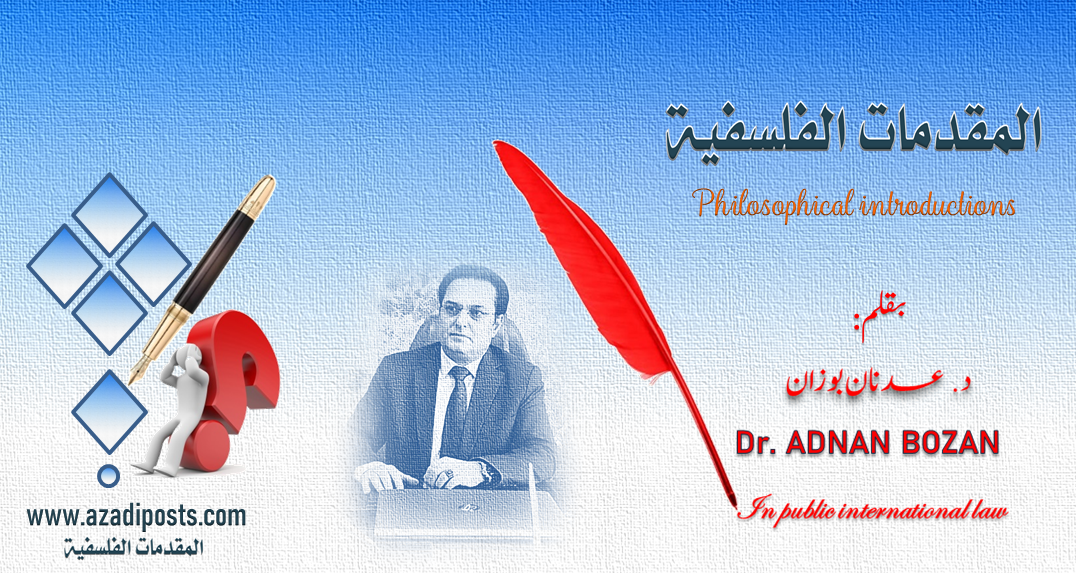
By Dr. Adnan Bouzan
Ignorant societies do not oppose falsehood as much as they oppose those who expose it, for their moral and psychological structures are founded upon the principle of obedience rather than understanding, upon submission rather than critique. In such an atmosphere, truth is not received as an illumination of consciousness, but as a threat to the harmony of collective illusion — a germ infecting the symbolic system through which man lives and derives the justification for his existence. Thus, truth becomes, in the consciousness of a community possessed by its dogmas, an intellectual crime and a dagger that strikes at the collective self built upon delusion rather than knowledge.
Ignorance, at its deepest level, is not a transient condition nor an accidental state; it is a self-sustaining system that produces its own instruments and perpetuates itself through the mechanisms of culture, religion, politics, and education. In an ignorant society, critical thinking becomes an act of hostility that threatens the “social sacred,” a construct built over centuries of repetition, obedience, and conformity. A society that does not dare to doubt cannot endure the truth, for truth dismantles inherited beliefs and places them under interrogation — an act the collective consciousness perceives as a rebellion against the absolute will of the group. Consequently, every attempt at understanding is met with rejection, and every awareness that transcends permitted boundaries is condemned as heresy, rebellion, or betrayal.
Truth, in itself, holds no social value except insofar as it serves the interests of the herd. Once it transcends that utilitarian function, it becomes dangerous — for it compels individuals to confront themselves, to acknowledge their contradictions, and to assume responsibility for their existence beyond the collective shelter. Hence, ignorant societies tend to transform truth into a time bomb hidden in the shadows, or into a poisoned dagger drawn against whoever dares to speak it. Ideas are not suppressed because they are false, but because they are true enough to undermine an entire structure of comfortable deception upon which the collective rests.
At its core, the conflict between truth and ignorance is not merely epistemological, but ontological and moral as well. Truth presupposes a will to life in its deepest sense — a will to liberation, to creation, to transcendence. Ignorance, on the other hand, is a withdrawal into the self, a fear of the unknown, and a clinging to customs as a safeguard against existential anxiety. Thus, when a human being declares his desire for truth, he is not asking for information or explanation; he is proclaiming a revolution against a mode of existence itself. He steps out of the comfort zone into the realm of anxiety, from collective tranquility into the inferno of individual consciousness. That is why truth is always a tragic act in a society that has not yet reached the stage of self-awareness — for it must be torn from the womb of fear, not granted from the tables of obedience.
The tragedy of the thinker or philosopher throughout history lies precisely in being born before his time. He is the one who sees what others refuse to see, who thinks outside the framework of meaning that provides them with security. Thus, he is condemned not because he errs, but because he is right. He is exiled, imprisoned, or defamed, for the truth he carries surpasses the psychological capacity of society to bear it. Here manifests the great Nietzschean paradox: truth does not save man until it destroys him, nor does it liberate him until it strips him of all that once sheltered him.
Societies that do not grant truth its rightful place condemn themselves to remain trapped within the recurring circles of ignorance, for they reject the first condition of enlightenment: the courage to question. When thought is criminalized, superstition is sanctified; when the voice of reason is silenced, darkness speaks in the name of virtue. At that moment, illusions are consecrated, temples are built for them, and falsehood becomes a moral system justified by all in the name of “stability.”
In the end, truth is not what is said, but what can be endured. It is a test of man’s strength in confronting himself before it is a knowledge of the world. It is the mirror that not only reflects man’s face but reveals to him what he hides from himself. Thus, the path to truth does not pass through blind faith but through honest doubt; not through indoctrination but through experience. No society has ever reached self-awareness without first enduring the ordeal of truth — the confrontation with itself and the collapse of its illusions.
And so, truth in an ignorant society remains a deferred crime — an intellectual time bomb planted in the foundations of collective consciousness, one that will not explode until minds mature enough to bear the cost of light. For truth is not a collective salvation, but an individual destiny, born anew with every person who dares to see.


